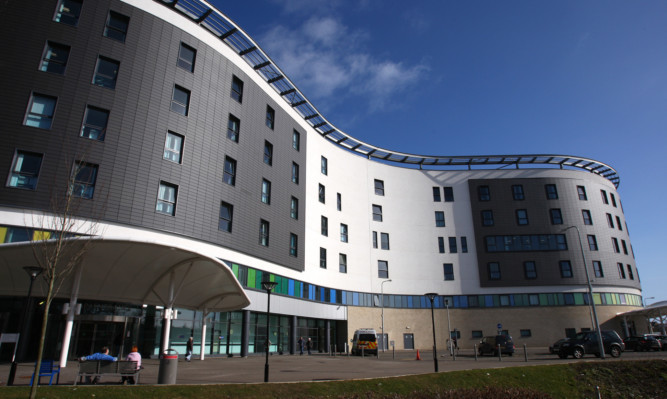Bed numbers at Fife’s largest hospital are to be investigated following an unprecedented increase in the number of patients being admitted.
The Victoria in Kirkcaldy has seen medical admissions through accident and emergency rise by 10% over the last year, and swamped staff have at times had to cope with bed occupancy rates of up to 124%.
This, combined with high numbers of delayed discharges has led to longer waits for treatment for some patients, while others have been sent as far as Glasgow or Aberdeen for operations.
The Scottish Government target is that no patient should be delayed more than four weeks. In March, NHS Fife had the highest number of delayed discharges in Scotland.
An inquiry has now been called for into the figures, although it has been made clear patients’ wellbeing should always be put before meeting targets.
While action is being taken to cut the number of unnecessary admissions, more beds are also needed, it has been claimed.
Councillor Andrew Rodger, chairman of the region’s health and social care partnership, said he and council leader Alex Rowley had asked for a review.
“At one time they were going to take 200 beds out of the system,” he said. “We stopped that from happening and it now looks as though they might have to add beds. They might put in intermediate beds or open up another ward.
“We’ve to get a report by the end of June on that.”
Mr Rodger added: “We’re looking for intermediate beds to ensure a better flow of patients coming through accident and emergency.
“This year, £4.7 million is being spent on private health care in Fife.
“If we don’t have the right amount of beds and a person’s discharge is delayed, then someone coming in for elective surgery on a Monday can’t get in because the bed is tied up, then waiting times go up and someone has to go to Glasgow orAberdeen for their treatment.
“They’re putting in more consultants and nurses but we have to have beds to put people into.”
Mr Rodger has also asked for a probe into delayed discharges but stated: “We have to treat elderly patients with care, respect and dignity and targets may sometimes be breached.
Fife Council lead for delayed discharge, Dougie Dunlop, said: “As we continue to work closer with NHS colleagues, not just on delayed discharge but on how we care for all vulnerable members of society, the need for a fundamental change tosystems is clear and we must do this together.
